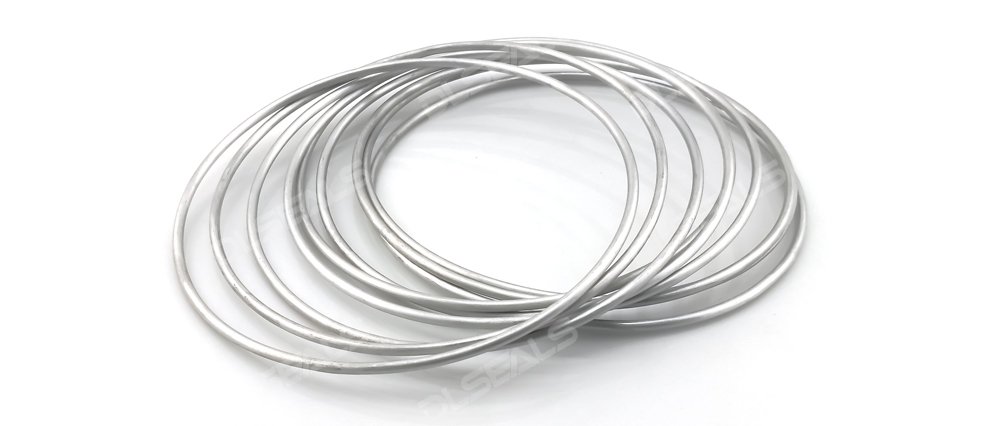In the ever-evolving field of medical device manufacturing, the quest for precision, durability, and reliability remains paramount. Metal seals have emerged as a cornerstone in this pursuit, offering innovative solutions that address the complex needs of modern medical technology. This article delves into the cutting-edge applications of metal seals in medical device manufacturing, exploring how they enhance device performance and contribute to overall patient safety.
1. Ensuring Sterility and Longevity
One of the most critical aspects of medical device manufacturing is maintaining sterility. Metal seals play a crucial role in this regard by providing airtight and watertight barriers that protect sensitive components from contamination. These seals are particularly valuable in devices that are used in sterile environments, such as surgical instruments and implantable devices. Their durability ensures that the devices remain sterile throughout their intended lifespan, which is essential for preventing infections and complications.
2. Enhancing Device Performance
Metal seals contribute significantly to the performance of medical devices by ensuring a secure and stable connection between various components. For example, in pressure-sensitive devices such as infusion pumps and respiratory equipment, metal seals help maintain consistent pressure levels and prevent leaks. This reliability is critical for the accurate delivery of medications and gases, thereby improving the overall efficacy of the device and enhancing patient outcomes.
3. Resilience in Extreme Conditions
Medical devices often operate in extreme conditions, including high temperatures and corrosive environments. Metal seals are engineered to withstand these harsh conditions, ensuring the devices remain functional and reliable. For instance, in devices used in high-temperature sterilization processes, metal seals prevent deformation and maintain their integrity despite repeated exposure to heat and steam. This resilience extends the lifespan of the devices and reduces the need for frequent replacements.
4. Customization for Specific Applications
The versatility of metal seals allows for customization to meet the unique requirements of various medical devices. Engineers can design seals with specific properties, such as varying levels of flexibility, hardness, and resistance to chemicals. This customization ensures that the seals perform optimally in their respective applications, whether it’s for implants, diagnostic equipment, or surgical tools. Tailoring metal seals to the precise needs of a device helps enhance its functionality and safety.
5. Facilitating Innovation in Wearable Devices
The rise of wearable medical devices has introduced new challenges and opportunities in device manufacturing. Metal seals are integral to these innovations, as they provide reliable sealing solutions for compact and portable devices. In wearable sensors and monitors, metal seals ensure that the internal components remain protected from external elements, such as moisture and dust. This protection is crucial for maintaining the accuracy of measurements and ensuring the longevity of wearable devices.
6. Advancing Miniaturization Efforts
As medical technology advances, there is a growing trend towards miniaturization, with devices becoming smaller and more complex. Metal seals are essential in this context, offering reliable sealing solutions for miniature components. Their precision and ability to be manufactured at microscopic scales enable the development of small yet highly functional medical devices. This miniaturization trend opens new possibilities for innovative medical solutions and improved patient care.
7. Compliance with Regulatory Standards
In the highly regulated medical device industry, compliance with stringent standards is non-negotiable. Metal seals play a vital role in ensuring that devices meet regulatory requirements for safety and performance. Their ability to provide consistent and reliable sealing contributes to the overall quality of the devices, helping manufacturers adhere to standards set by regulatory bodies such as the FDA and ISO.
Conclusion
Metal seals are at the forefront of innovation in medical device manufacturing, offering solutions that enhance performance, ensure sterility, and withstand extreme conditions. Their versatility and resilience make them indispensable in the development of advanced medical technologies, from wearable devices to complex implants. As the medical device industry continues to evolve, the role of metal seals will undoubtedly grow, driving further advancements and contributing to improved patient outcomes.
Incorporating metal seals into medical device design and manufacturing not only addresses current challenges but also paves the way for future innovations, ensuring that medical devices remain safe, reliable, and effective in addressing the needs of patients worldwide.
Post time: Aug-05-2024

